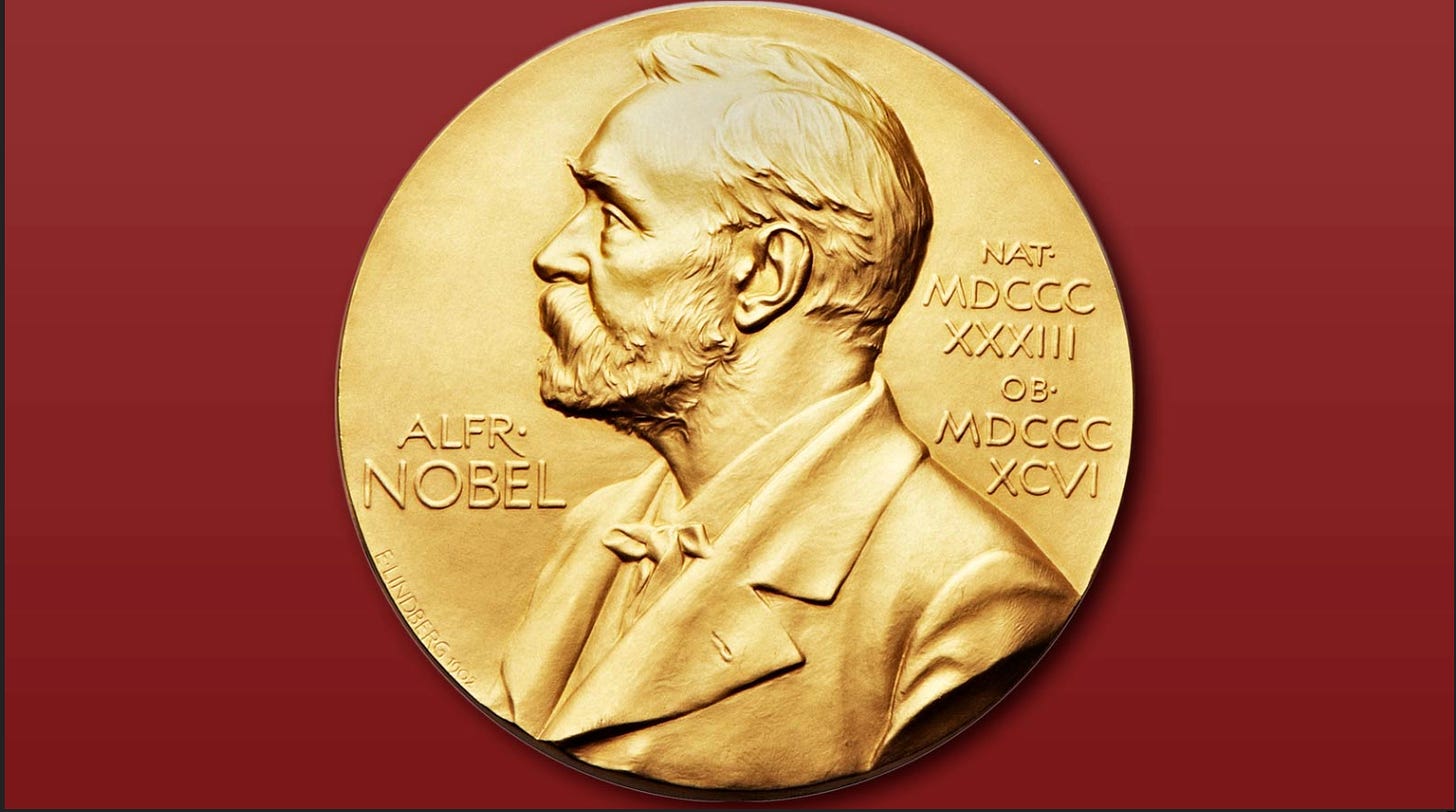CROSSPOST: 23 Economics Nobel Prize Winners for Kamala Harris
Acemoglu, Akerlof, Banerjee, Deaton, Peter Diamond, Douglas Diamond, Duflo, Engle, Goldin...
Acemoglu, Akerlof, Banerjee, Deaton, Peter Diamond, Douglas Diamond, Duflo, Engle, Goldin, Hart, Imbens, Johnson, Maskin, McFadden, Merton, Myerson, Nordhaus, Phelps, Romer, Roth, Shiller, Stiglitz, & Thaler…
The Open Letter:
We, the undersigned, believe that Kamala Harris would be a far better steward of our economy than Donald Trump and we support her candidacy.
The details of the presidential candidates’ economic programs are not fully laid out yet, but what they’ve said, combined with what they’ve done in the past, gives us a clear picture of alternative economic visions, policies, and practices.
While each of us has different views on the particulars of various economic policies, we believe that, overall, Harris’s economic agenda will improve our nation’s health, investment, sustainability, resilience, employment opportunities, and fairness and be vastly superior to the counterproductive economic agenda of Donald Trump.
His policies, including high tariffs even on goods from our friends and allies and regressive tax cuts for corporations and individuals, will lead to higher prices, larger deficits, and greater inequality. Among the most important determinants of economic success are the rule of law and economic and political certainty, and Trump threatens all of these.
By contrast, Harris has emphasized policies that strengthen the middle class, enhance competition, and promote entrepreneurship. On issue after issue, Harris’s economic agenda will do far more than Donald Trump’s to increase the economic strength and well-being of our nation and its people.
Simply put, Harris’s policies will result in a stronger economic performance, with economic growth that is more robust, more sustainable, and more equitable.
Daron Acemoglu (2024), George A. Akerlof (2001), Abhijit Banerjee (2019), Sir Angus Deaton (2015), Peter A. Diamond (2010), Douglas Diamond (2022), Esther Duflo (2019), Robert F. Engle III (2003), Claudia Goldin (2023), Sir Oliver Hart (2016), Guido W. Imbens (2021), Simon Johnson (2024), Eric S. Maskin (2007), Daniel L. McFadden (2000), Robert C. Merton (1997), Roger B. Myerson (2007), William D. Nordhaus (2018), Edmund S. Phelps (2006), Paul M. Romer (2018), Alvin E. Roth (2012), Robert J. Shiller (2013), Joseph E. Stiglitz (2001), Richard H. Thaler (2017)
American citizens missing from the signatory list are, I think: James Robinson, Paul Milgrom, Robert Wilson, Michael Kremer, Thomas Sargent, Chris Sims, Paul Krugman, Robert Aumann, Finn Kydland, Vernon Smith, Michael Spence, Myron Scholes.
Not a great look guys—if your economics cannot tell you that tariffs unrelated to the need to nurture communities of engineering practice or other sources of positive externalities are a really bad idea, you shouldn’t be in this business. I understand that one cannot read everything that crosses one’s desk and cannot sign everything that begs for your signature, but this is indeed a moment when silence does not look good at all…






I expect that Paul Krugman is seen as too political because of his often expressed opinions about the Trump “economic plans” and his joinder would be used to challenge the expressions by the actual signers. We know where he stands!
I suspect that a letter carrying the signature of a couple of dozens Nobel economic prizes will do little to sway the type of voters that Harris needs to win. Should they ever come across it, I am afraid the patronising tone may have the opposite effect. I wonder who of the Nobel prizes has come up with the peculiarly American economic test of “strengthening the middle class.”